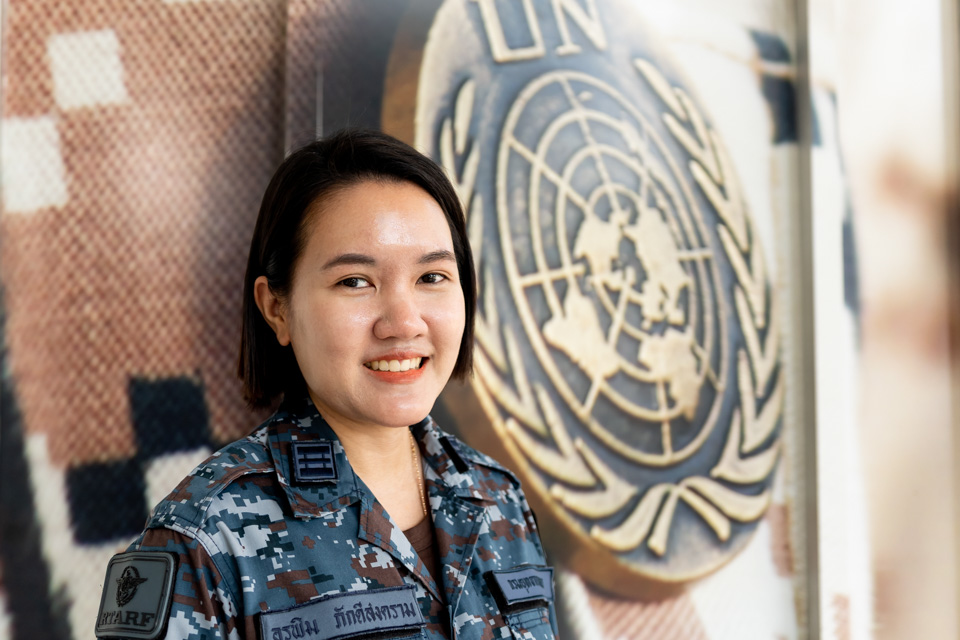I am Generation Equality: Orapim Pakdeesongkram, Thai military instructor and former United Nations peacekeeper in India and Pakistan
Billions of people across the world stand on the right side of history every day. They speak up, take a stand, mobilize, and take big and small actions to advance women’s rights. This is Generation Equality.
Date:
Author: Interview by Kanokchon Tantivechakul


Three things you can do to become part of Generation Equality
- Volunteer in what you are passionate about.
- Embrace diversity and accept each other more.
- Support and inspire other women and be their voice.
I Am Generation Equality because…
My experience as a former peacekeeper [was that] it is important to have women’s rights. The root cause of problems … in the world starts from inequality.
I can do so much more for other people by sharing my experience, by sharing my knowledge. When you share your knowledge and experience, it gives other people choices. It gives them ideas about what they want to do.
I always tell my students that when you are deployed [on United Nations peacekeeping missions], you need to make that one year count. By helping others and making them see that they can also make a difference in other people’s lives.
During the UN mission, when I met local women, it meant so much to them to see a female peacekeeper who wore a uniform and worked side by side with men.
I had a chance to visit a women’s college in Kashmir. I talked to them about human rights, their rights, and to make sure that they understood what the world needs from women.
I met a lot of women, for example, teachers, students and a group of housekeepers. The group of housekeepers [were] local women trained to be only housewives. It became clearer to me how important it is for women to understand human rights. Because they do not deserve to be a restricted to be housewives.

“It meant so much to them to see a female peacekeeper who wore a uniform and worked side by side with men.”

I went on a patrol in a nearby village with my male friend from Sweden. Male villagers refused to talk to female peacekeepers. I saw an old lady at a shop. I decided to go over and see how she was doing. I knelt down and talked to her. She touched my face and treated me like one of her children. She gave me a blessing and told me that talking to me felt like she was talking to her grandchildren.
My colleague told me that he had never seen anything like that before. He said that in the field he never thought about kneeling down and talking to people like that. He said to me that is the reason why the UN needs more female officers on the ground. Female officers can do so much more than male peacekeepers.
As female peacekeepers, we were … the voice of the local women who were suffering the conflict area. When you are their voice, they will be heard.
Pursue education to the fullest
Education is the door to many opportunities. I always encourage my students to pursue as high [an education] as possible. In my spare time, I usually volunteer to teach English for a charity in a poor community.
Exposure helps men see your point of view
Not just in wartime but in every situation, the topic of gender should be put on the table. Women should be seen as of equal status, as a colleague, not as a vulnerability.
[Men] need to understand and work side by side with women. Men can [then] understand the needs of women and see what is lacking. Men also need to be involved in every change. In the military, it’s male-dominant. But by working side by side, they will understand.
Orapim Pakdeesongram, 35, is a squadron leader at the Peace Operations Center in Bangkok of the Royal Thai Armed Forces. She teaches officers who are preparing to be deployed on United Nations peacekeeping missions. In 2016, Orapim served with United Nations Military Observer Group in India and Pakistan.